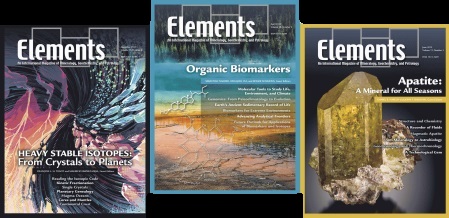Martian meteorites have delivered to Earth water molecules and minerals produced by aqueous processes on Mars. The study of these samples, using powerful analytical instrumentation, provides a basis for understanding aqueous activity on Mars. Although most analyses are at the scale of microns, the conclusions reached have important implications for large-scale aqueous processes. Secondary minerals, such as clays, salts, and carbonates, are present at some level in all Martian meteorite subtypes and are especially important in the nakhlites and ALH84001. Light element stable isotope analyses show evidence for mixing between atmosphere and magmatic fluids into a crustal reservoir, and that this crustal water was not in equilib- rium with the host rocks. The mineralogical and isotopic data present a fairly consistent picture of the aqueous history of Mars: low levels of aqueous alteration are generally present but extensive aqueous processes are probably limited in space and time.
This content is for Registered members only. To subscribe, please
join one of our participating societies or contact the Editorial Team.

